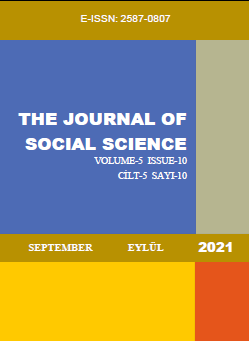A CONSTRUCTIVIST ANALYSIS OF THE IMPACT OF INDIA’S DOMESTIC IDENTITIES ON ITS NEIGHBOURHOOD POLICIES TOWARDS SOUTH ASIA
A CONSTRUCTIVIST ANALYSIS OF THE IMPACT OF INDIA’S DOMESTIC IDENTITIES ON ITS NEIGHBOURHOOD POLICIES TOWARDS SOUTH ASIA
Author(s): Shakaib RAFIQUESubject(s): International relations/trade, Politics and society, Inter-Ethnic Relations, Ethnic Minorities Studies, Politics and Identity
Published by: Dicle Üniversitesi, Sivil Havacılık Yüksekokulu
Keywords: Constructivist Approach; Externalizing Internal Challenges; Hindutva; Transnational Group; National Identity; Domestic Identities; Neighbourhood Policies;
Summary/Abstract: Domestic factors especially national identities of a Nation-State influence its foreign policy by distinguishing that country’s perception of “self” from that of “others”. By employing the case study of India, this paper assesses the way India perceives its national identities and the resultant effects on its foreign policies towards South Asia. The paper assesses that in India, its peculiar political construct superimposed by British colonizers and multiple ethno-religious groups stacked together under a Hindutva-inspired political system serve as an aberration from the evolution of indexical “self” of different nationalities in that country. Accordingly, India’s national identity formation is premised on “exclusion” and it attempts to overcome this challenge through externalization of its internal problems towards neighbourhood.
Journal: The Journal of Social Science
- Issue Year: 5/2021
- Issue No: 10
- Page Range: 349-360
- Page Count: 12
- Language: English

